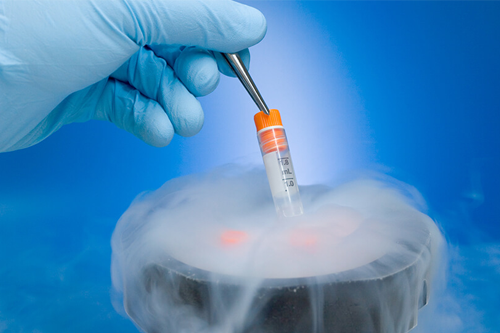
Egg freezing, also known as oocyte cryopreservation, is a medical procedure where a woman's eggs (oocytes) are harvested from her ovaries, frozen, and stored for future use. This process allows women to preserve their fertility, enabling them to delay having children until a later age. It can be a viable option for women who are not ready to have children yet but want to preserve their ability to do so in the future.
Ovarian Stimulation : The woman undergoes hormonal treatment for about 10-14 days to stimulate the ovaries to produce multiple eggs (instead of the single egg that is normally produced each month).
Monitoring : During the stimulation period, the woman will have regular ultrasounds and blood tests to monitor her response to the hormones and the development of the eggs.
Egg Retrieval: Once the eggs are ready, they are retrieved through a minor surgical procedure. This is usually done under sedation. A needle is inserted through the vaginal wall to collect the eggs from the ovaries.
Freezing : After retrieval, the eggs are frozen and stored for future use.
Age : As women age, their fertility naturally declines. Freezing eggs at a younger age (typically under 35) may help preserve fertility for later in life.
Health Reasons : Women undergoing treatments like chemotherapy or radiation that may damage their fertility may opt to freeze their eggs beforehand.
Career or Personal Plans : Some women want to focus on their careers, education, or personal growth and may not be ready to have children in their 20s or 30s.
Success rates for egg freezing depend on factors like the woman's age at the time of freezing, the quality of the eggs retrieved, and the process used for thawing and fertilizing the eggs later on. Generally, women who freeze their eggs younger have higher success rates when it comes to using those eggs for pregnancy later.